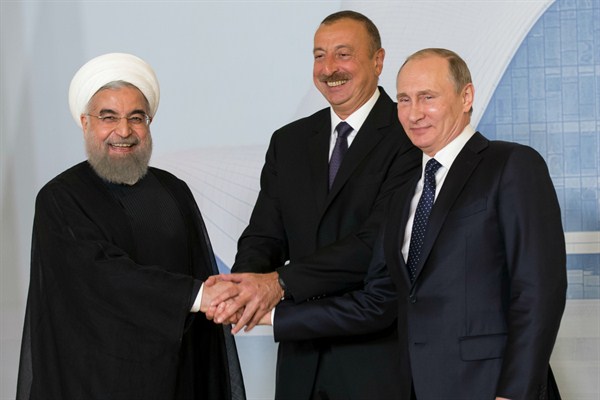Geo-economics dominated the agenda of two critical meetings this week: a trilateral economic summit in Baku between Russia’s Vladimir Putin, Azerbaijan’s Ilham Aliyev and Iran’s Hassan Rouhani, followed by a bilateral summit in St. Petersburg between Putin and his Turkish counterpart, Recep Tayyip Erdogan. While matters of war and peace were also on the agenda—the stalemated conflict in Nagorno-Karabakh and the ongoing fighting in Syria—both summits’ main focus was on ensuring connectivity to the global economy.
Let’s start with Iran. In the year since Iran acceded to the terms of the nuclear agreement it signed with the group of world powers known as the P5+1, Hassan Rouhani’s government has followed one overarching geo-economic strategic goal: to prevent Iran from ever again being easily cut off from the global economy.
In the decades following the Islamic Revolution in 1979, subsequent Iranian governments always assumed that despite the hostility of the United States, Iran’s position as a major supplier of energy to the world would always put limits on the types of sanctions Washington could get other countries to agree to impose—and enforce—against Tehran. Through the mid-2000s, even close U.S. allies in Europe, as well as other key partners in Asia like Japan and South Korea, were never prepared to completely sever all economic contact with Iran. Its reserves of oil and gas were presumed to be a significant check on America’s ability to wield sanctions as a weapon.

